Cyclone
Cyclone is a travel phenomenon that can have a major effect on any journey. It is a large-scale storm system that forms over warm oceans and usually brings strong winds and heavy rains. The majority of cyclones occur in the tropical regions of the world around the Caribbean and Indian Oceans, but they can form in other parts of the world as well.
Cyclones form when large areas of warm, moist air converge and spiral over a low-pressure center. As more air is drawn into the system, air pressure decreases and the winds increase, creating a unique kind of meteorological storm. Cyclones maintain their strength as long as they are travelling over warm waters - however, when they eventually make landfall, they generally weaken and dissipate.
Cyclones typically form between the southern latitudes of 30 degrees North and 30 degrees South, and they typically occur between April and December. During these months, sea surface temperatures are warmest and most cyclones will form from gently rotating areas of cloud called ‘cyclonic disturbances’.
Most cyclones will travel towards the west before eventually petering out, but some will turn northwards towards land - this is when they become dangerous. Once a cyclone reaches land, it can cause considerable damage due to its strong winds and heavy rains. These storms can cause flooding, landslides, structural damage, power outages and disruption to transport links.
When travelling to areas prone to cyclones, it is important to keep an ear out for weather reports. If a cyclone is approaching, it is best to get away from coastal areas and head to safety. Cyclones can produce extremely powerful winds, so travellers should be cautious when venturing outside during a cyclone. If a storm is severe, it is best to seek shelter until the storm passes.
When travelling in areas prone to cyclones, it is also important to ensure you are properly covered by insurance. It is common for insurance policies to exclude coverage for cyclone damage, so it is essential to shop around for the right policy.
In those regions where cyclones are a common occurrence, there is usually good infrastructure in place to help keep people safe. Local authorities are experienced in predicting and predicting cyclones, and they generally issue warnings to people in the effected areas so that they can take appropriate safety measures.
Travellers should be aware of the risks associated with cyclones and take preventative action to minimize the effects of these storms on their journey. Preparation is key when travelling in areas susceptible to cyclones, and those who do their homework are more likely to enjoy safe and successful trips.
Cyclone Mitchell Pilbara Port Closures Travel Impacts

Cyclone Gezani Madagascar Travel Disruptions

Port Hedland Cyclone Threat Clears Pilbara Ports

Cyclone Fytia Madagascar Floods Disrupt Roads and Ferries

Cyclone Koji North Queensland Flights Jan 10 to 12
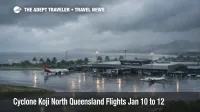
Cyclone Hayley, Queensland Floods Disrupt Australia Travel
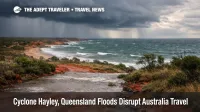
Cyclone Grant Cocos Flights Still Fragile After Eases
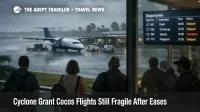
Cyclone Ditwah Sri Lanka Road Transfers, Recovery Tips
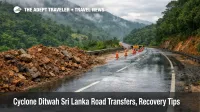
Brazil Cyclone Hits Paraná Ports, Cruises Divert
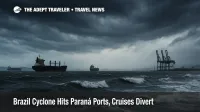
Southeast Asia Floods Reshape Travel Plans
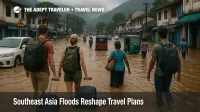
Asia Floods And Cyclones Disrupt December Travel

Typhoon Risk Alters Southeast Asia December Cruise Sailings

Cyclone Ditwah Floods Sri Lanka And Asia Travel Routes
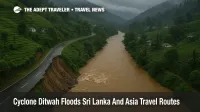
Southeast Asia Floods Turn Winter Beach Trips High Risk
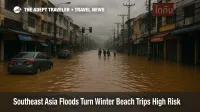
Cyclone Ditwah Sri Lanka India Flights And Trains
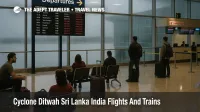
Vanuatu, New Caledonia Cyclone Season Raises Cruise Risk
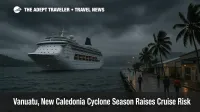
Travel News: IT Outage and Strikes Affecting Lufthansa, and a Cyclone is Affecting Travel in New Zealand

